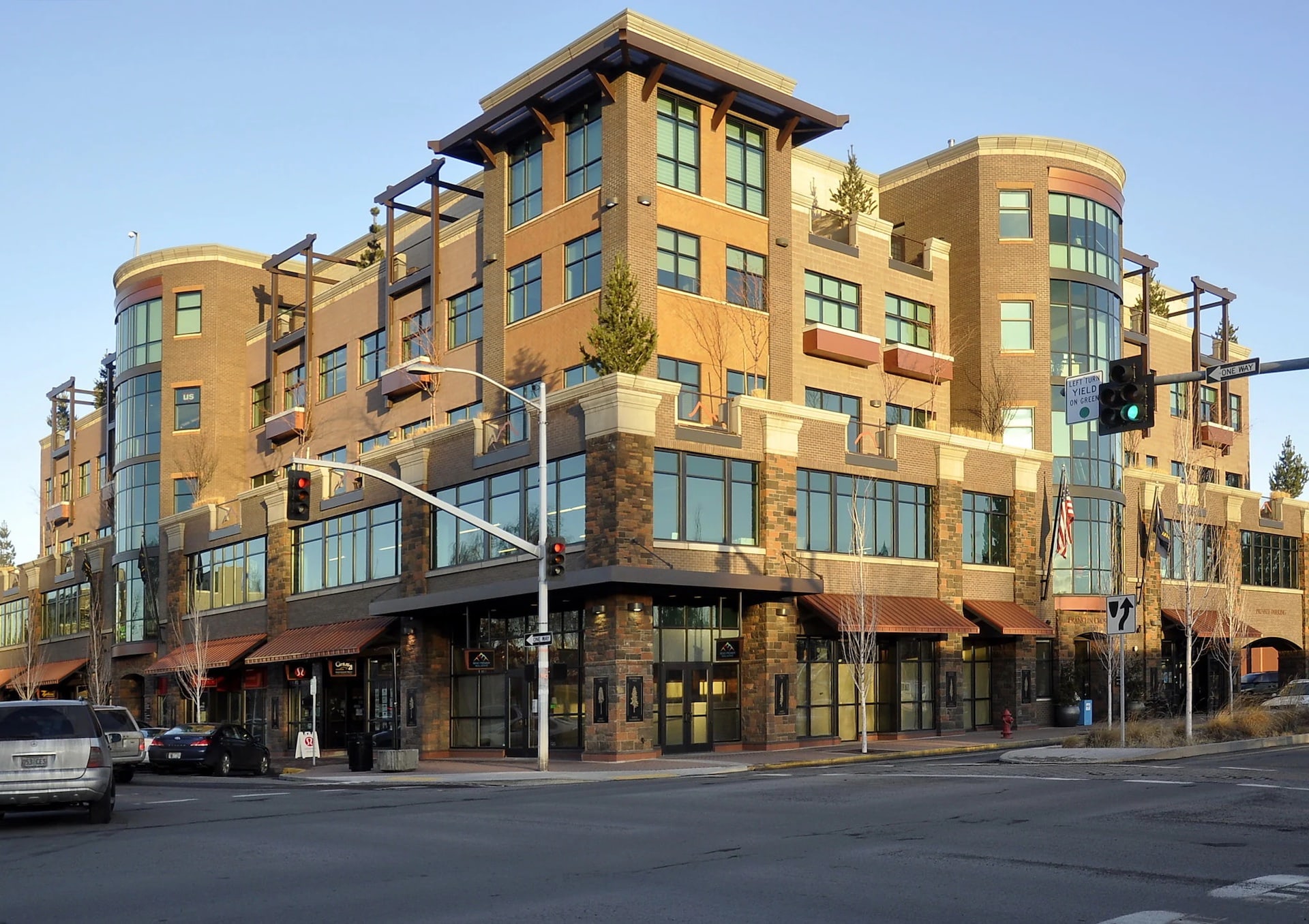A mixed-use hard money loan is a short-term privately funded bridge loan secured by a building, which combines two or more different types of uses within that same building. These uses can be commercial, residential, or even industrial – and they’re typically designed to work together in a way that benefits both the building occupants and the surrounding neighborhood.
For example, a mixed-use building might have ground floor retail space, office space on the second floor, and apartments or condominiums on the upper floors. Another example might be a building that combines a hotel, office space and a restaurant, which is common in large cities.
At First Capital Trust Deeds (FCTD) we have a wealth of experience in mixed-use real estate investment. As mortgage brokers, we have the benefit of working with a breadth and depth of investors to fund a variety of mixed-use investment scenarios, in cities across the U.S. We have served as long-term financing partners to many real estate investors with mixed-use properties in their portfolios.
Why Investors Use Short-Term Hard Money Loans
Real estate investors and developers use hard money loans to acquire, refinance or build a mixed-use property. Hard money loans are more expensive than bank and institutional loans – but are essential when the borrower or property doesn’t qualify for long-term financing.
Below are a few examples of mixed-use hard money loan scenarios:
Investor Purchased Mixed-Use Building With High Vacancies
A 1031 Exchange investor had their bank loan denied 10 days prior to the scheduled close of escrow, due to the high vacancy levels within the residential portion of the mixed-unit building. They used a 12-month bridge loan to close, and leased all the residential units. Ultimately, they refinanced into a bank loan with a 12-month rent roll.
Investor Acquired a Partially Finished Building
FCTD had an investor purchase a building mid-construction from a builder who abandoned the project, and just wanted to break even. This turned out to be a great project, as we secured a construction completion loan for our borrower to acquire and finish the project.
First Floor Cannabis Tenant With Residential Units Upstairs
The owner of a mixed-use property in Los Angeles leased first-floor retail space to a cannabis dispensary. Their CMBS lender discovered the cannabis tenant and called the loan — because the borrower violated the terms of the loan agreement, which prohibited leasing to a cannabis tenant. The owner paid off the CMBS loan quickly with a 12-month hard money bridge loan. The 12 months gave them time to apply for institutional financing through a state-chartered bank.

Pricing and Terms for Mixed-Use Hard Money Loans
Pricing and terms for hard money land loans are case-by-case, depending on the following criteria:
- Borrower Experience
- Borrower Liquidity
- Scope of Work
- Timeline for Completion
- Finished Value
- Additional Collateral
- Exit Strategy
For additional pricing info, read our blog post, Hard Money Loan Pricing, Interest Rates, Fees, Closing Costs.
Exit Strategy: Paying off Mixed-Use Hard Money Loans
When you apply for a hard money loan for a mixed-use property, you’ll need to dial into your exit strategy details. If you’re wishy-washy about the end game, a broker and lender will want you to drill down to a definitive exit strategy – along with a fallback position in case something happens.
There are two types of exit strategies: property sale and refinance.
Property Sale
A common strategy to pay off a loan is to sell the property. However, it's important to ensure that the sale price will be enough to cover the bridge loan without over-encumbering the property. To evaluate this risk, FCTD will assess the expected sale price during underwriting to determine if there is enough wiggle room for the borrower in case the market dips and they have to lower their list price. Our goal is to help borrowers come out with proceeds from the sale, rather than having to use additional funds to pay off the loan at closing. By carefully evaluating the expected sale price, we can set up borrowers to successfully pay off their bridge loans while also minimizing the risk to their property.
Refinance
If you plan on refinancing out of a mixed-use hard money loan, you’ll need to have a good idea of the bank or institutional loan you’ll apply for. Below are the long-term programs that most borrowers use to pay off hard money financing:
- SBA 7(a)
- SBA 504
- USDA B&I
- Bank Loans - community and regional banks where the borrower has a depository relationship
- CMBS
Conclusion
FCTD is committed to helping real estate investors find the right mixed-use hard money loans to fund their projects. Whether for commercial, residential or industrial purposes, hard money lending can help borrowers acquire, refinance or build a mixed-use space. When speed is important and long-term financing is difficult to come by, the flexibility of hard money lending can be the best solution for obtaining your next property. FCTD has the resources and expertise to help you explore the mixed-use hard money loans that can work best for your particular situation.
More about Mixed Use Hard Money Loans
3 min read
Why Do Investors Use Hard Money to Finance Mixed-Use Commercial Buildings?
Jul 9, 2023 by Ted Spradlin

